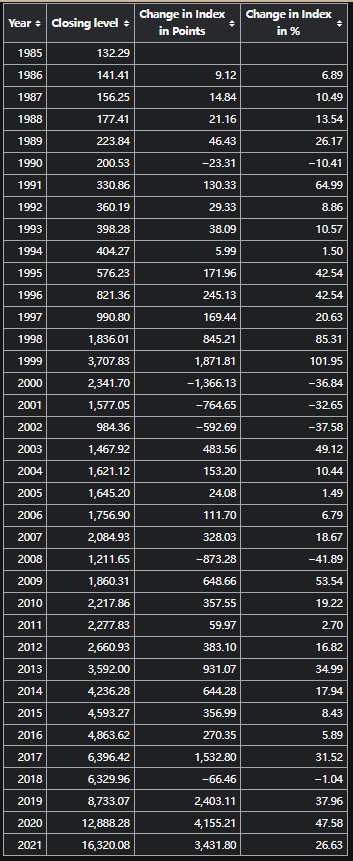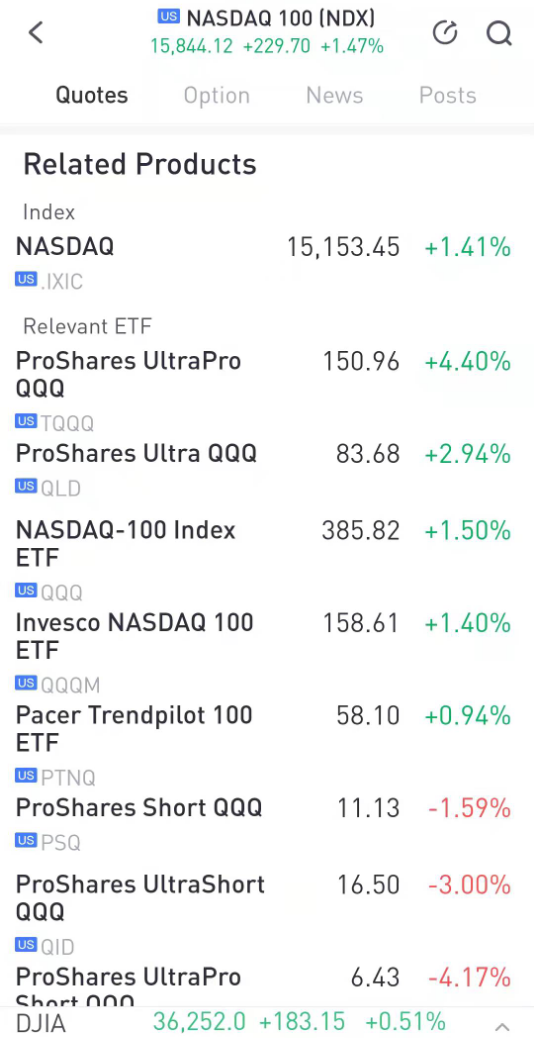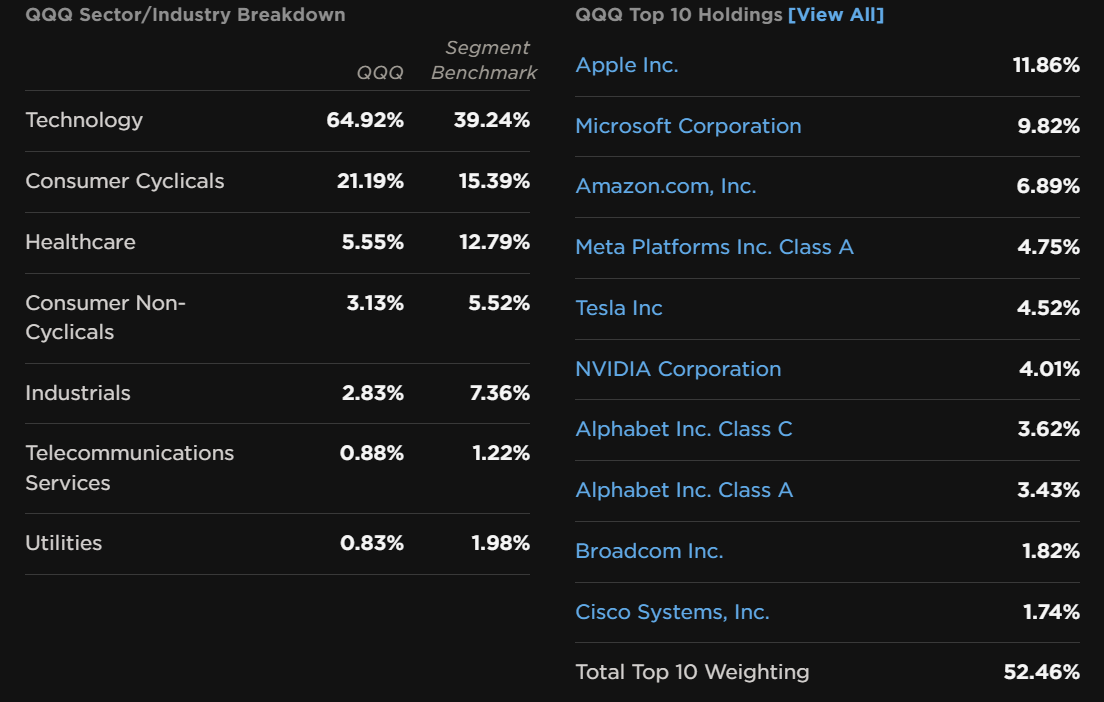QQQ, PSQ, TQQQ, Which Leveraged ETF You Prefer To Buy?
In the first few trading days of the New Year, the US stock index collectively saved the street.$S&P 500(.SPX)$-1.87%, Nasdaq-4.46%.
Nasdaq here, I would like to say more$NASDAQ 100(NDX)$. Instead of the Nasdaq Composite Index, which everyone understands, its performance is-4.53%.$NASDAQ(.IXIC)$
To say that these two indexes have similar daily fluctuations and similar index points. Unless otherwise specified, there is no obvious misunderstanding of substituting both. But as the Q&A website says, the difference between Nasdaq 100 and Nasdaq synthesis is like the difference between the top 10 students in the class and all the students. Nasdaq Composite Index contains more than 3,000 targets, and Nasdaq 100 is its selection, including 100 companies with the largest market value listed on Nasdaq Stock Exchange, except for financial companies.
Since its establishment in 1985, the increase has been gratifying for more than 30 years. Especially the performance in recent 10 years is enviable. The specific increase can be seen in the following table.
If you want to say why my motherland's stock index can't create a long bull trend, you feel that the technology of index compilation is worth tackling like a chip.Post an article hereInterested tiger friends can read it. In addition, it is gossiped that Nasdaq 100 has been selected by 7 non-American companies, including 4 from China, Baidu, JD.COM, Netease and Pinduoduo. At this point, it is better than S&P, and Dow Jones has never been selected as a foreign company.
And tracking the investment Nasdaq, the first ETF associated with it,$NASDAQ-100 Index ETF(QQQ)$. This is also the main point of this article, those ETFs that track Nasdaq in a fancy way.
As a market value weighted index, the top10 constituent stocks of Nasdaq 100 Index are as follows.
Specific weight distribution, if you read the above article, then you will have a better understanding of why the weight of each company is this number. I feel that Netflix is not in the top ten, but it is actually ranked 11th. Strictly speaking, Netflix is still ranked in the top10 as a company, because Google occupies two places.$Netflix(NFLX)$$Alphabet(GOOG)$$Alphabet(GOOGL)$
QQQ just tracks the Nasdaq 100 index in an ordinary way, so it is good to be accurate. The richness of US stock ETF is reflected in the fact that it can be reversed and doubled. For example, as we are going to talk about,$ProShares Short QQQ(PSQ)$And$ProShares UltraPro QQQ(TQQQ)$.
The so-called reverse ETF means that the index rises by 1%, while the reverse ETF falls by 1%. The so-called leveraged ETF means that the index rises by 1%, and it rises by 2% or 3%, depending on whether it is 2 times leverage or 3 times leverage.
In the last trading day, Nasdaq 100 fell by 1.1%, QQQ was-1. 08%, PSQ was1.07% and TQQQ was-3. 27%. As you can see, it can only be as accurate as possible, and some errors are inevitable. The key reason why leveraged ETFs can't be held for a long time is that they have long-term losses. This seems to be a mathematical problem, which deserves a separate article. Interested tiger friends can search for self-study first.
At this point, as a small popular science post, I mainly take Nasdaq as an example to witness with youRichness of US stock ETFs. As for the rate, it has not been carefully screened. Generally speaking, the management fee of mainstream ETFs like QQQ, which track the market, is relatively low, at 0.2%. In contrast, PSQ and TQQQ are both 0.75%. To some extent, it also reflects the scale effect.
However, how do you think leveraged ETFs do it?
From the perspective of leveraged ETF company, assuming that it has a net value of 1 million now, in order to track the index twice, it is theoretically necessary to borrow another 1 million from the market (buying futures is essentially lending it funds by the exchange), so that its exposure becomes 2 million.
So, how does reverse ETF do it? Do you hold short positions?
Disclaimer: Investing carries risk. This is not financial advice. The above content should not be regarded as an offer, recommendation, or solicitation on acquiring or disposing of any financial products, any associated discussions, comments, or posts by author or other users should not be considered as such either. It is solely for general information purpose only, which does not consider your own investment objectives, financial situations or needs. TTM assumes no responsibility or warranty for the accuracy and completeness of the information, investors should do their own research and may seek professional advice before investing.




QQQ
[Duh]